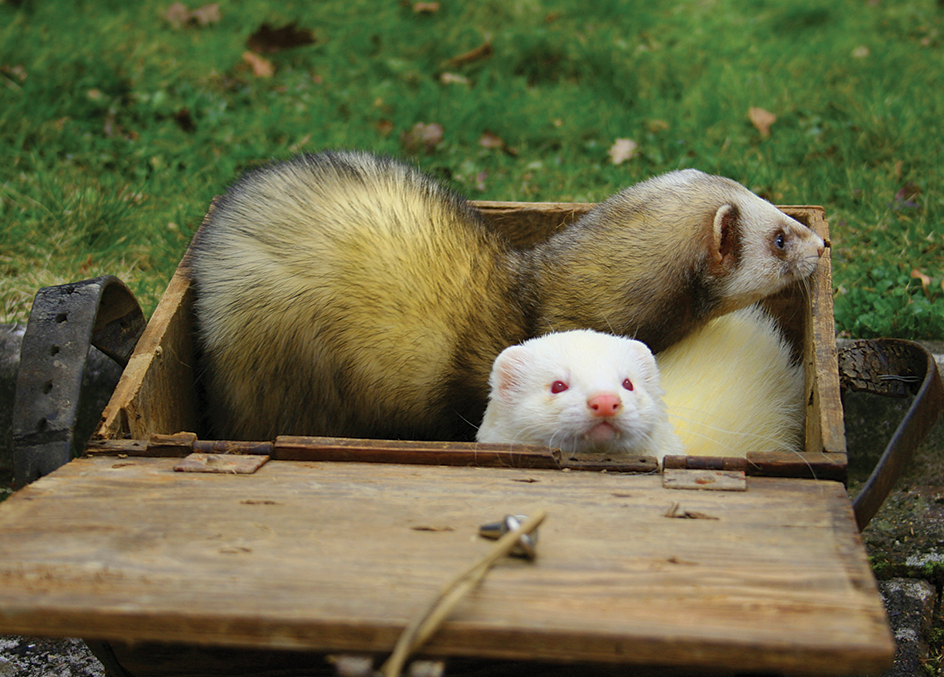Albinism, << AL buh nihz uhm, >> is a condition in which an animal or plant is unable to produce pigment (coloring substance) in some or all of its organs. As a result, the animal or plant has abnormally light coloration. Albinism is caused by a change in the genes (units of heredity) and can be inherited. A person who is a true (complete) albino has milky-white skin and white hair. True albinos appear to have pink irises (colored parts of the eyes) because of the way light reflects off the eyes. The irises themselves do not have pink coloring, but instead possess a small amount of blue pigment or no pigment at all. In normal eyes, enough pigment exists in the irises to hide the pinkness. Albinism occurs about once in every 20,000 births.

Albinism may vary from the complete absence of color to the presence of nearly normal amounts of pigment in some organs. Most white horses, chickens, ducks, and geese are only partial albinos because these animals have pigment in their eyes, beaks, or legs. Albino animals are rarely seen in the wild because their unusual coloration makes them inviting to prey.
In many partial albino plants, only the flowers have no pigment. But some albino plants also lack chlorophyll and the leaves are also white. Such plants die unless they can get food from their surroundings, because plants need chlorophyll to make food.
